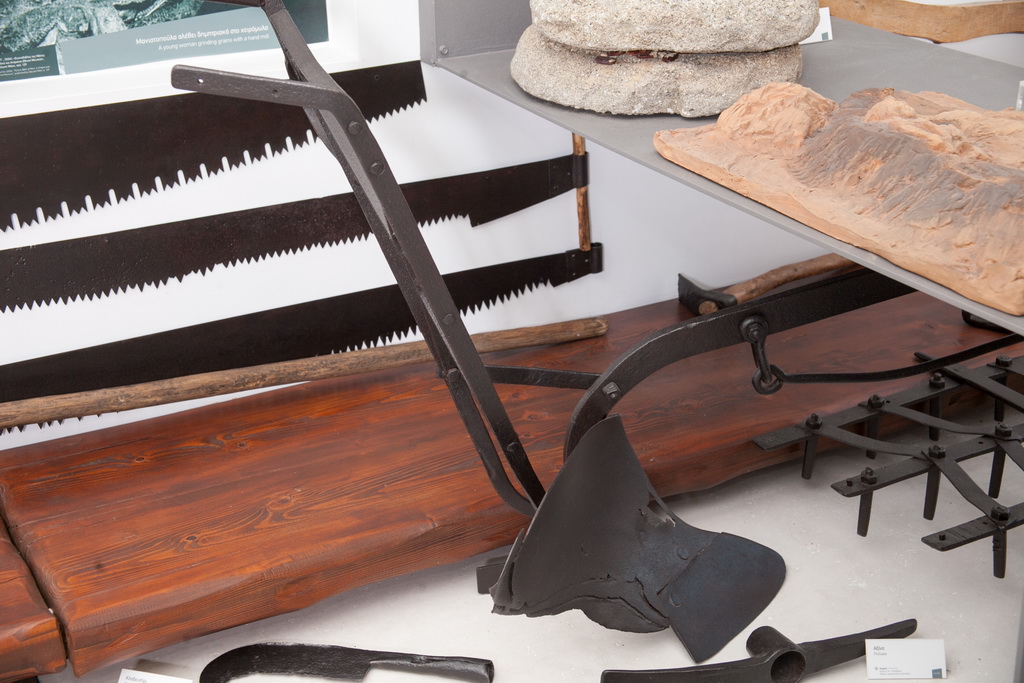014 - Plow
FARMING TOOL used for plowing. It consists of: a) a shaft that served as base, known as “stavari”, b) the frame, known as “aletropoda” or “aletropodi”, a sharp iron tip that opened grooves for seeding, which supported the plow and ended at the plow- share, c) the knife (or coulter), a vertical beam that adjusted the depth of the plowing, d) the moldboard, an extension of the plowshare that facilitated the opening of the grooves, and e) a handle, known as “aletronoura”, with which the farmer directed the movement of the plow.
A wooden yoke was attached at the front end of the base, from which the ropes of the collars on the necks of the animals started. Wooden plows were made by farmers themselves and were in use until the mid-‘50s, when they were gradually replaced by iron plows. For their manufacture, farmers used types of wood resistant to canker (wild olive, fig, holly, laurel), which were also used in a series of magical-religious practices aimed at eliminating evil.
Donors: George Andreakos and Kaiti Karlafti



